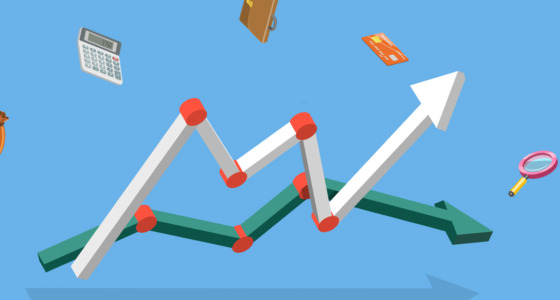

Here’s a cool time management fact: if you take 10-12 minutes to plan your day, you can save up to 2 hours, which you would otherwise waste. But what’s even better is that if you take the time to prepare for the trading session, you can not only save your time but also potentially your funds.
So, you want to approach the market with an objective mindset, which means you need to trade without emotion or hesitation. As you can tell from today’s topic, this comes from thorough planning — and below, you can check three tips that can help you in trading.
1. Plan your trades before the market opens

You may think that everyone knows that you should plan your trades before the session. But you’d be surprised to learn how many people forget or simply neglect this rule. They wait until the start of the trading session to formulate their strategy for the day. In expert trading circles, it’s a big no-no.
When the trading session begins, there are too many distractions. If you don’t already know what to do, you can either become too hesitant or too doubtful, both of which can result in excess trades, with trading losses lowering returns.
Dedicate at least an hour to prepare before you make your first trades for the day. Review your positions, read the news, and build a plan, detailing your targets and limits for the day.
2. Be ready for different market conditions
Have you ever felt stuck when you needed to make a decision? Perhaps you weren’t prepared for this scenario. This could be avoided if you came up with different situations and solutions to them in advance.
This can be a good time to make so-called if/then statements. Imagine you are planning a trade for a certain stock, and you expect it to follow one of two specific scenarios. For example:
- If the 50-day crosses above the 200-day, and there is a confirmation from an oscillator, then you will buy.
- If it crosses below, then you’ll wait for more favorable conditions.
Write down these statements for as many possible outcomes as you can. This will maximize your chance of responding quickly to all sorts of market conditions.
You don’t have to think in hypotheticals. It’ll be even better if you can draw from your own experiences. In the past, did your expectations match up to what actually happened that day? How did your respond? Was it a good trade in the end? These can be the framework for your if/then statements.

3.Assess your profit-loss ratio and grade yourself
Before you can plan the next session, you need to review the one you just had. Think of it as taking yourself back in time when you had your papers graded and doing the same with your trading results.
Calculate the total returns your account made and the losses it suffered during the session. Match these results with your capital and risk management plans: are your losses higher than usual? Were they offset by the returns you’ve made? Do you see a pattern that causes you to have a losing streak? How can you improve?
Remember that analyzing your profit-loss ratio is not only about the numbers. Your “final grade” is not meant to discourage you. Consider it a midterm that shows you which areas could use some improvement. If the review reveals that you didn’t stick to your trading plan and the session was unsatisfactory, execute your trading plan exactly as written before making any changes.
Final thoughts
You’ll have busy mornings ahead of you drawing up your trading plan for the day. But if you do it the proper way and stick to the plan, you’ll minimize the risks of emotional trading. Fear, panic, and FOMO can lead to poor trading decisions, but objectivity can help you keep calm.








